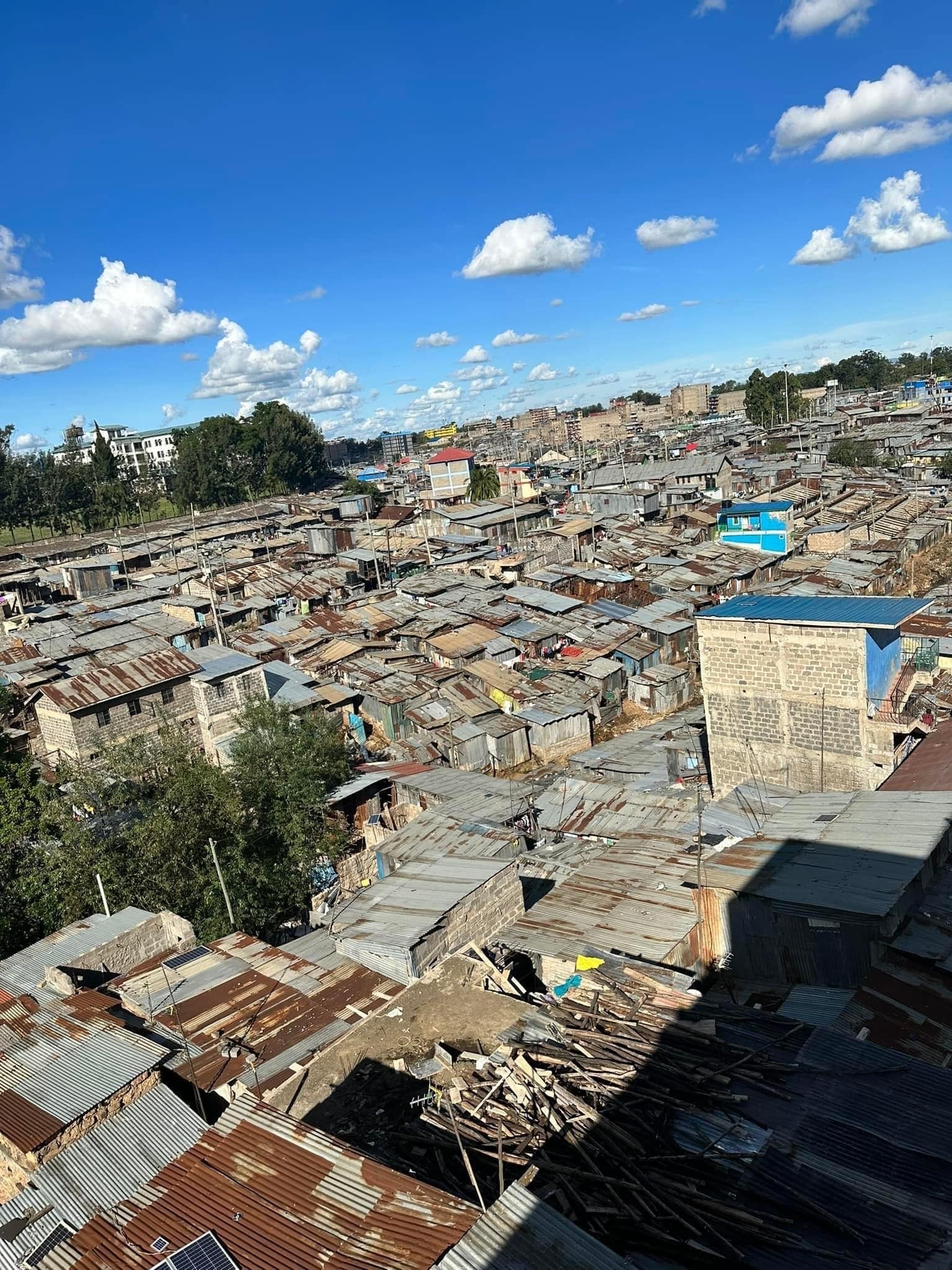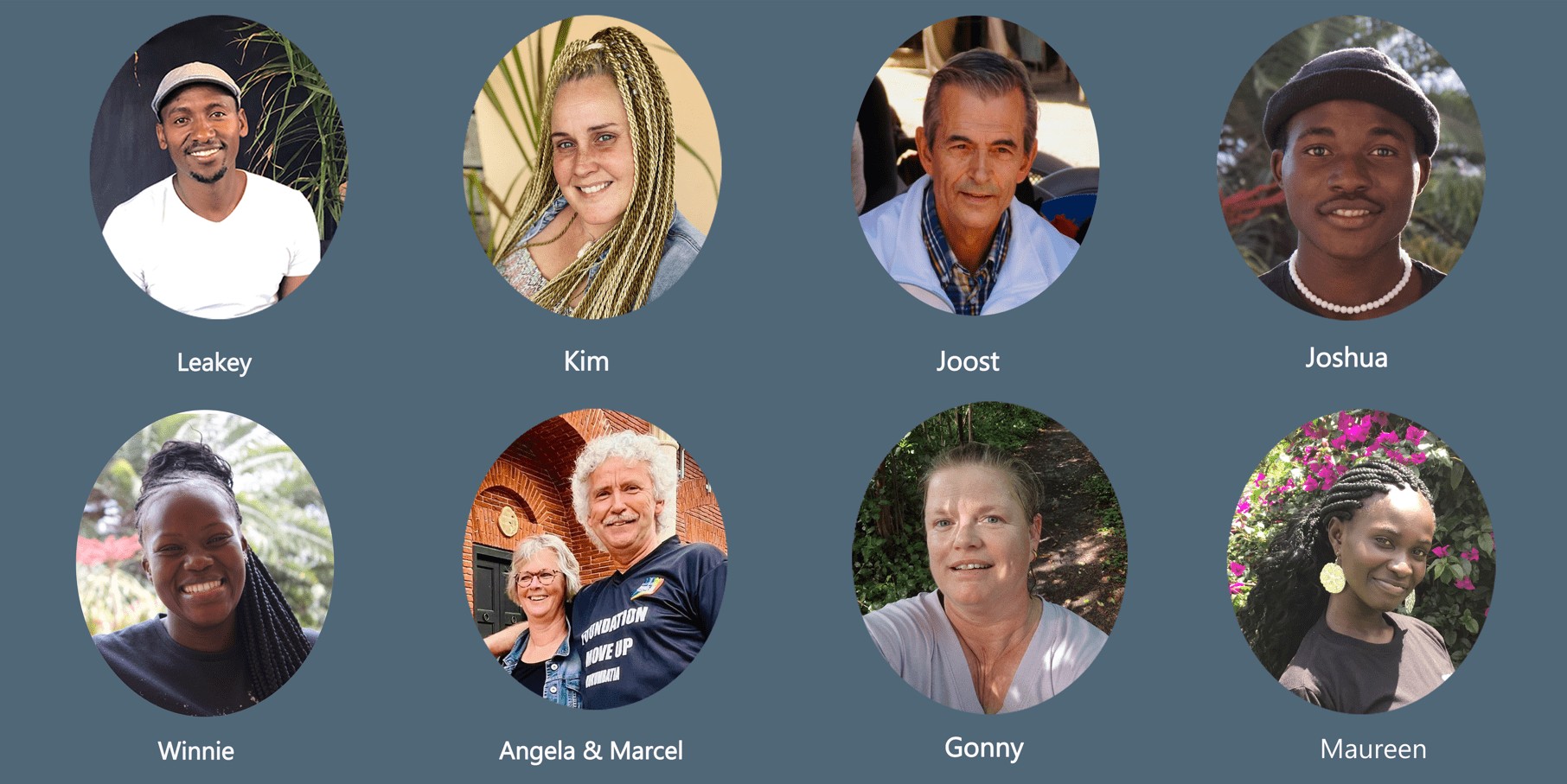To nurture, empower and transform local youths to be self reliant, independent and key players in their community.
To develop a comminity where people actively participate in the decisions that affect their everyday lives and their future generations.
The majority of our team grew up in Mathare, one of the largest slums in Africa. They know better than anyone what it is like to grow up in extremepoverty and violence. Fighting for existence, for equal oppertunities. We therefore work from the core with people who can best share experiences with each others.There is always a strong hope and believe for a better life in the slums. People are always looking for a path that leads to a better future for their families, communites and themselves. We are there to support. Our motto is “Teach them how to fish so they can fish forever”
We are an organisation which is based in The Netherlands and in Kenya.


Among all our projects, Wezesha Elimu is a pearl. It has everything to do with one of the main items of the organization, EDUCATION. We all want our children to be able to go to school. This you need to pay for, but then a school uniform must also be worn. And it is precisely the school uniform that often creates a problem. If there is damage to the uniform, or worse, if it is missing, the school door is closed to the child concerned: NO UNIFORM, NO SCHOOL!!!
This is a very hard fact, especially for the poorest. Foundation Move-Up does something about that. There’s contact with the school first. Then it will be determined who is eligible for renewed or new clothing. After that, the date of presentation will be determined. On the day of giving out uniforms or repairs there is a ceremony, everyone and everyone is in a party mood. The street is closed off, tents are build, there is music, there is theatre , the sewing machines do their job and the atmosphere is fantastic. Each child is introduced and the clothing is handed over to applause from all those present. Children and teachers, everyone feels happy and radiates that too. Going to school is something special, especially for the poorest.
Sometimes we find families who need more help to keep their childeren in school.Think of someone who lost a partner and is trying to work for food and paying house rent. In those cases we ask support to keep a child in school. Foundation Move Up is paying through the support, the schoolfees for the student directly to the school. If a donor would like to have personal contact with the student it can happen through the organisation. This, because of the expectations who might rise sometimes and gives a presure to the donor.
Period is something all girls over the world have to deal with. Some a little earlier than the other. Girls in the slums and rural areas in Kenya don’t have it easy. Sanitary pads cost an average daily wage.. What if you had to choose, do I buy food or sanitary pads? For this reason, girls often stay home from school and miss out a lot of knowledge which is very important for their future. During their period they often use pieces of fabric, leaves or one of the girls told us she used a sock filled with sand because it absorbs. A lot of girls have sex for money to buy sanitary pads, which often results in a pregnancy at a very young age. THIS HAS TO STOP!!!
Foundation Move-Up is supporting girls and woman by giving out Menstrual Cups. A sustainable and ecological solution because 1 cup lasts for 10 years and does not give any waste than once in 10 years when the cup has to be changed. It is important that girls feel comfortable to speak freely during the menstrual classes so Foundation Move Up has trained a Menstrual Cup trainers who are giving classes about the use of the Menstrual Cup, everything about menstruation and very important about hygiëne. We are training trainers so that the cup can be distributed throughout Kenya and even accross the borders. Cups are given out in schools and sports facilities in the slums of Nairobi, Kenya and rural areas. Because menstruation is still quite taboo, we first have meetings with schools and for the younger girls also with the mothers so that they also receive all the information and their own menstrual cup. It means they can exchange information and experiences with their daughters. Let’s keep the girls in school, give them the freedom to join sports without worry and help us to stop menstruation poverty.
Having half of our volunteers in the Foundation Move Up, being trained as football coaches, we take sports, especially football as one of our key project. Since the area we operate in is Mathare Valley, the second largest slum in Nairobi, Kenya. Football being among the key sports that have changed most of our young people with reducing violence, early pregnancies, and crimes. We take the advantage of the knowledge we have, to educate young people using football as the main tool to bring them together. More than 60 % of the population of Mathare slums are young people. Our girls football team is also ambassador from our Menstrual Cup project. These girls will educate more young girls in Mathare slums about hygïene and the use of a Menstrual Cup and improving the enviroment. It is not only educating them through sports, but Mathare has a list of very good players since in our Kenyan football team we have a number of players from Mathare.
The sun is the largest natural energy source we have. Sunlight is abundant, it is sustainable and it is available everywhere. It is the solution for everyone who needs electricity, but no electricaly outlet in the near. Electricity is common to many, but the reality is that many people in this world do not have access to electricity. Also in the slums and in the countryside in Nairobi, Kenya many people don’t have access to electricity Mathare is a slum in Nairobi, Kenya, where about half a million people live. Many people in this slum have no or only irregular access to electricity. In Kenya it is always dark at 7 p.m. That means that from that time on, there is no light and you cannot see a hand before your eyes. In order to have light, many people use unsafe light sources such as kerosene lamps or candles, which are very expensive for them to buy. In addition, the light that comes from a kerosie light or candle is minimal, unhealthy to breathe in and it can couse a fire so it is dangerous. Children come home from school late.
Many have to walk long distances before they get home. It is mostly dark or quickly dark. It is making homework very difficult. Access to light and electricity means access to education, to communication, to ways of earning an income, to belief in yourself, to a better future. We want to change that with a light that works on solar energy. The Waka Waka Light. Together we can make that change and give them a light in the darkness Waka Waka Light & Power is a compact, highly efficient solar powered light. The light has 4 light intensities and with its 2 powerful LEDs it gives up to 200 hours of bright light. Thanks to the efficient integrated solar panel you can fully charge it with just 5 to 8 hours of sunlight. Next to the light is it is also a powerful, compact power bank. You have the electricity you needto get your phone charged or listen to music. The light has a unique design so that you can use it in different ways. For example as a hanging lamp by putting a string on it or as a table lamp by placing it on the top of a bottle (add pictures of it) Our longterm plan is to bring streetlights on solarenergy in Mathare. We are doing the research already and we will start by putting the lights around our eco center (MATHARE GREENHOUSE) which we are building. Often the power goes off and these lights will still give light. It will bring safety in the area and it will help the businesses as they mostly work in the dark with a kerosine light.
During times of Covid-19, schools in Kenya were closed for 1 whole year. We were interacting with a group of kids in Mathare to keep them busy and teached them about life skilss when our eye fell on a boy who was walking around in the area. Living in his own world. We saw him having seizures often a day. That’s when we decided to ask around. Who is this boy, what is his story and how can we help. We had a conversation with the chief of the area and we learned more about the family situation and the boy. His name is Austine. When we met him he was 14 years old. Austine was sometimes locked up in a slum house and he never went to school. He has epilepsy and did not had any treatment for that. The time we met him, Austine couldn’t talk but he is understanding very well. When he was around 12 years old he was brought to his fathers house as the parents are not together. Up till today he is still living there.
We got in contact with the father and the (step)mum and shared ideas on how to help their son. First we visited KISE (Kenya Institute Of Special Education) to get a diagnose and to see which school woud be best for Austine to go to. Next to that we went together with Austine’s Dad and Austine to the hospital for an EEG so Austine would get the right medication for the epilepsy. Austine is joining a boarding school for children with special needs, Nile Road Special School. Up till today we join and support him in hospital visits and paying his schoolfees through support of donors. Austine is improving very well and is now talking a lot. Most import, his epilepsy is under control because of the medication. We are working now to get an ID card for people with disabillities. This card serves as proof of disability and can be used wenever proof is needed to access certain services, programs or activities. We will continue follow up on him as long as needed. We are following up when we see children with special needs which we think families need some extra support and guidience. As our organisation also has a football team and other sports, our dream is to put a team together and create a sporting change for everyone.
We are located in Mathare 4B area which off thika superhighway Nairobi at the heart of the great Mathare Valley.
+254 727626601
foundationmoveup1@gmail.com info@foundationmoveup.org
Foundation Move Up does not approve of visiting orphanages, as this can often lead to negative consequences for the children. Often, the children in an orphanage still have a parent or another family member. Instead, we stand for supporting those families so that they can continue to care for the child themselves. A child should receive love from a family. You can help by supporting a family in food or school fees.